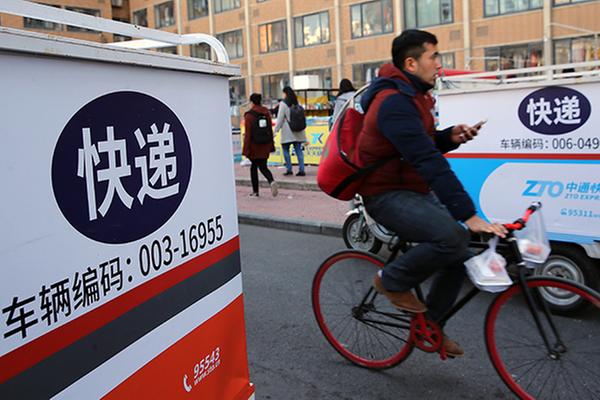Technology can put an end to pitfalls of real-name registration
China Daily | Updated: 2017-06-14 07:20
 |
| Express-delivery tricycles with eight-digit registration numbers are seen in Beijing on Dec 2, 2016. [Photo/China Daily] |
The weak implementation of the real-name registration for deliveries, which requires people to present their identity cards when sending or collecting parcels, has a lot to do with the pursuit of efficiency and convenience.
For express delivery companies, carrying out real-name checks on every customer means extra work for the couriers, who normally lack the motivation to do so given their already heavy workload and low wages. Many customers, too, are wary of the risk of divulging their personal information because it might be sold and misused. As a result, the real-name procedures are only followed when a major international event is being held in the country.
Express delivery companies need speed to stay competitive and make profits in the delivery business, as do the couriers. But there is enough room for striking a balance between efficiency and security.
The risk of personal information being sold and misused is real. This requires strengthening the daily supervision of delivery companies and couriers, improving the security of user information and increasing efforts to combat personal information disclosure and the buying and selling of user information.
With more express delivery companies digitizing and automating their offline operations, it should not be difficult to introduce a unified information management platform which allows express companies to double-check customers' identities without the risk of information being leaked.
To better protect the personal information of customers, offering a channel for longtime, known customers is also worth a try. Technical innovations such as face recognition and cloud data could also improve how the real-name registration system works.
























